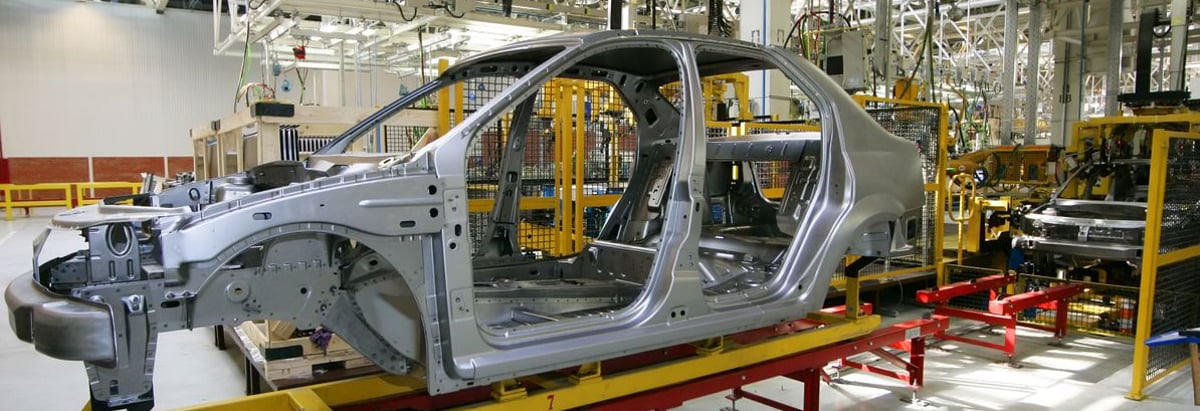Stock Analysis
Returns On Capital Are Showing Encouraging Signs At Mitsubishi Motors (TSE:7211)

If you're looking for a multi-bagger, there's a few things to keep an eye out for. Typically, we'll want to notice a trend of growing return on capital employed (ROCE) and alongside that, an expanding base of capital employed. This shows us that it's a compounding machine, able to continually reinvest its earnings back into the business and generate higher returns. Speaking of which, we noticed some great changes in Mitsubishi Motors' (TSE:7211) returns on capital, so let's have a look.
Understanding Return On Capital Employed (ROCE)
Just to clarify if you're unsure, ROCE is a metric for evaluating how much pre-tax income (in percentage terms) a company earns on the capital invested in its business. Analysts use this formula to calculate it for Mitsubishi Motors:
Return on Capital Employed = Earnings Before Interest and Tax (EBIT) ÷ (Total Assets - Current Liabilities)
0.13 = JP¥181b ÷ (JP¥2.4t - JP¥942b) (Based on the trailing twelve months to June 2024).
Therefore, Mitsubishi Motors has an ROCE of 13%. That's a relatively normal return on capital, and it's around the 12% generated by the Auto industry.
View our latest analysis for Mitsubishi Motors
Above you can see how the current ROCE for Mitsubishi Motors compares to its prior returns on capital, but there's only so much you can tell from the past. If you're interested, you can view the analysts predictions in our free analyst report for Mitsubishi Motors .
What Can We Tell From Mitsubishi Motors' ROCE Trend?
Mitsubishi Motors is displaying some positive trends. Over the last five years, returns on capital employed have risen substantially to 13%. Basically the business is earning more per dollar of capital invested and in addition to that, 37% more capital is being employed now too. The increasing returns on a growing amount of capital is common amongst multi-baggers and that's why we're impressed.
The Bottom Line On Mitsubishi Motors' ROCE
In summary, it's great to see that Mitsubishi Motors can compound returns by consistently reinvesting capital at increasing rates of return, because these are some of the key ingredients of those highly sought after multi-baggers. Since the total return from the stock has been almost flat over the last five years, there might be an opportunity here if the valuation looks good. That being the case, research into the company's current valuation metrics and future prospects seems fitting.
If you want to continue researching Mitsubishi Motors, you might be interested to know about the 1 warning sign that our analysis has discovered.
While Mitsubishi Motors may not currently earn the highest returns, we've compiled a list of companies that currently earn more than 25% return on equity. Check out this free list here.
New: Manage All Your Stock Portfolios in One Place
We've created the ultimate portfolio companion for stock investors, and it's free.
• Connect an unlimited number of Portfolios and see your total in one currency
• Be alerted to new Warning Signs or Risks via email or mobile
• Track the Fair Value of your stocks
Have feedback on this article? Concerned about the content? Get in touch with us directly. Alternatively, email editorial-team (at) simplywallst.com.
This article by Simply Wall St is general in nature. We provide commentary based on historical data and analyst forecasts only using an unbiased methodology and our articles are not intended to be financial advice. It does not constitute a recommendation to buy or sell any stock, and does not take account of your objectives, or your financial situation. We aim to bring you long-term focused analysis driven by fundamental data. Note that our analysis may not factor in the latest price-sensitive company announcements or qualitative material. Simply Wall St has no position in any stocks mentioned.
About TSE:7211
Mitsubishi Motors
Engages in the development, production, and sale of passenger vehicles, and its parts and components in Japan, Europe, North America, Oceania, the rest of Asia, and internationally.


